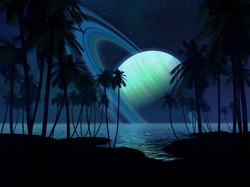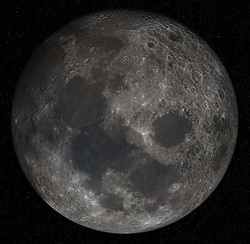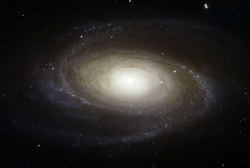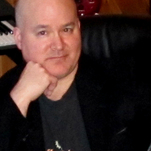108 billion humans have lived since 50,000 BC  The details of the overall plot for the Beyond trilogy are reaching critical mass. Yes, I should be focusing mainly on the book I'm writing, the second volume in the set called The Far Beyond. And I am. But as that part of the story fleshes out, it necessarily creates ties to The Just Beyond and implications for the final book. And this is important, because it helps assure two things: 1) that the narrative will maintain an intimate, logical, and consistent flow, and 2) that I'll finish writing it. :) Even with publication of the first book, writing the other two is a daunting challenge. Writing is a struggle for me to begin with, and on top of that I am perpetually aware that one well-received book is no guarantee for the others, even as they follow the over-arching theme begun in the first. With regard to The Far Beyond specifically, the middle book of a trilogy is often the weakest, and I'm consciously working to overcome that phenomenon. I mean, The Two Towers is entertaining and critical to Lord of the Rings, but it certainly lacks the excitement of The Fellowship of the Ring or the satisfaction of Return of the King. Which brings me to a point about writing. Lord of the Rings is my unqualified favorite work of fiction, and its appeal sets the standard to which I aspire. An unfortunate side effect, at least for me, is a tendency to write something that parallels LOTR to an uncomfortable degree. According to a calculation by Google, the total number of books ever published (mostly in the modern era) is around 130 million. The Population Reference Bureau calculates that a total of 108 billion humans have lived since 50,000 BC (equating to one book per every 831 people, which doesn't account for writers who produce multiple books). The arbitrary starting point makes this a dicey statistic, though: somthing like modern civilization is said to have commenced only about 10,000 years ago when the last great Ice Age ended, or even later with the Ancient Egyptians around 5,000 BC. On the other end of the spectrum, human ancestry can be traced to around 100,000 years back or as far as 2 million, depending on how you define human. Which is a tedious and twisting setup for the statement that it's devilishly hard to come up with an original story. At the archetype level, every conceivable scenario has been written about over and over and over, and probably better than I could hope to do. How can one writer among a world population of 7 million generate something, if not a completely untried premise then at least a distinctive variation, that hasn't been done before? Even in heavily trodden, formulaic genres like Western and Romance, publishers want to know what makes your book stand out. And as a first-time author, you'd better have an answer. When that question came, I told publishers that what distinguished The Just Beyond and its successors was a fearless depiction of the Afterlife. As noted on this site's home page, I aimed to transcend the prevailing approach of leaving the nature of the world beyond death "to the imagination". Nothing in fiction is more disappointing than a story that leads you down the garden path only to invoke this cop-out at the end. I've never read another book that handles this subject quite as I did, and my research didn't turn up anything too dangerously close...but how can you know for sure? And in spite of my good intentions, that old compulsion to ape my favorite material seems to have slipped in while I wasn't looking. I began this posted not intendng to compare the Beyond books with Lord of the Rings. Yet as I consider it, some parallels pop out. In both sets the protagonist is an unassuming personality with empathetic and courageous tendencies, capable of extraordinary feats when called upon. Both tales begin with some necessary background and then launch a desperate, stealthy flight hounded by ghoulish enemies. Upon reaching a safe haven more of the plot is revealed, sending the hero on an even more harrowing path that results in a critical death. Powerful truths are revealed, unlikely allies emerge, formidable enemies are bested, and the most fearsome foe of all is finally confronted in an epic battle involving a sword of immense power. Prominent side characters are wed to their loves, and our hero sails off to a surprising but well-deserved reward. I never intended nor even recognized these shared elements; obviously my subconscious had the upper hand. Ah, well. Any originality issues raised by my trilogy probably won't matter, since the first book has been judged viable enough to print. That's good, because I'm not sure I could do better. If I'm fortunate enough to develop a solid writing career, I'll certainly try. In the meantime, faintly echoing a classic is hardly the worst problem I could have. :) - Mark
0 Comments
A billion years is a very long time--almost twenty times as long as it's been since the dinosaurs went extinct--but compared to Eternity it's not even a nit.  The Just Beyond asks what has always seemed to me a natural question, deceptively hard to answer. If there really is an afterlife and you're fortunate enough to get there...what are you going to do? The question is probed at greater length if not more eloquently in the book, but to boil the problem down, it goes something like this. When you think about it, everything we do in this mortal life is bound up with our physical bodies. Note, I didn't say everything we care about, I said everything we do. I can think of plenty of moral and artistic values we care about that seem primarily spiritual. Back to that in a moment, but to finish the first point. Suppose, as most believers do, that in the afterlife the body and its requirements are transcended. No more pain, no more injury, no more disease, no more fatigue, et cetera. Having surpassed the physical, there's no need or reason to eat or drink, or sleep, or arrange for shelter, or have sex. Presumably no babies are born in the afterlife, so that last is doubly useless. (Is that really an afterlife I want to live in? I'm not so sure. lol) You don't need money, because you don't need anything at all just to survive, so you surely wouldn't work at anything you didn't find worthy on its own merits. But would you even do the worthy things? For a while, sure, assuming you could; maybe for a very long time. If you've always loved skiing, maybe you climb the highest mountain and schuss down it one zillion times. No lift needed, you wouldn't get tired and you'll never run out of time. But what's the cutoff point? At a zillion and one, have you finally done down every possible path, had every possible experience, maybe had each of them a thousand times, or a million...does the compulsion to do this at some point stop? The same is true of any activity. How many songs can you write or paintings can you make before you're out of ideas or enthusiasm or both, a billion? A trillion? And what are you going to paint or sing about? If the Earth is behind us, the sick are made well, there's no more poverty, war, hard luck, or romances gone bad, what's your material? Even if you have an answer, how long can you stretch it out? A billion years is a very long time--almost twenty times as long as it's been since the dinosaurs went extinct--but compared ti Eternity it's not even a nit. Most people when they think of afterlife envision themselves communing with loved ones or acquaintances long lost. That is a terribly noble and worthy picture. But think about it. After a while, and I mean a long, long period of doing that...what are you going to talk about? There won't be any family secrets or celebrity scandals. There won't be any politics or issues of general concern. There won't be any news, either about the world or about you and your loved ones; given enough time, everything that can be said will have been, and there's no more coming. No marriages or births or deaths or misfortunes or runs of increble luck. All that stuff arises from the mortal human condition. I know people who imagine themselves just standing in the Heavenly pews singing praises to God as their afterlife activity. I'm not going to argue with that, it sounds nice, wholesome, worthwhile, enchanting, and probably well-advised. :) But the same analysis applies even there. Are you going to do nothing but sing in church for all eternity? Is that really what your whole existence was all about? The Just Beyond begins to answer this question, and the trilogy when complete will give the most logical and satisfying answer I've been able to work out--and I've given this a lot of thought. :). Even so, I've been harboring a terrible secret. Because I realized somewhere along the way that my answer, as reasonable and carefully constructed as it was, ultimately fell to the same criticism I've outlined above. My scenario works for a long time, a very long time, and explains everything from the purpose of mortal life to the ultimate fate of good and evil...but then, after all that has been said and done, philisophized about and settled...in comes Eternity again. And it's just about impossible to think up a scenario that truly conquers ALL time. I knew this, and I thought the books would come close enough to feel they had achieved it as far as one reasonably could, and I had set the problem far aside, on a small table in a dark basement room in another house, never to be thought about again. :) And then, suddenly, it came to me...an even better way. An answer that went beyond my hard-crafted paradigm, as full and coherent as it was. An answer that seems like it could be eternal, and if not, comes close enough to blur the distinction between perfect and very, very, very, very good. :) What is it? Read the books. I hate to leave it at that, but on the other hand this is the sort of thing, obviously, that can't be fully revealed until the final pages of the final book. With any luck I'll have that written by the end of next year. Meet you at Beyond All Else, and you can let me know how I did. :) - Mark If the Sun were the size of a basketball... Setting aside the quote above for the moment--it's not related to this question--how long would it take to walk from the Earth to the Moon? Assuming a suitable road, space suit, and a sustainable pace with breaks for eating and sleeping, of course.
It works out to about 30 years. Not bad at all. How long would it take to walk to the Sun? You'd need a good deal more sophisticated suit, but if you had one, and could spare the time... about 12,000 years. That actually surprises me in how relatively short it is given the 93 million mile distance. 12,000 ago is just about the time the first humans migrated over the Bering ice bridge to North America. If they hadn't stopped to found the Maya, Inca, and other Native American cultures, they could have made it to the Sun by now. This is the kind of thing I figure out in my head to put myself to sleep at night. You can do this one. If the Sun were the size of a basketball... how far away from it would Saturn be? :) If that's too easy by itself, work out all the planets... and what common items they would be the size of... You can do it without a calculator. :) - Mark the truth turned out to be so outlandish no one would have even suggested it.  Theia was a real planet, about the size of Mars, that orbited our sun when the solar system was new alongside Venus and Mercury and the Earth. We don't talk much about it now, because we don't see Theia as she was. But Theia is still there. It would be cool if I could tell you that Theia was obliterated in a mighty collision that blasted her wreckage into the rocky ring between the orbits of Mars and Jupiter that we call the Asteroid Belt. Alas, science has pretty much proven that the asteroids aren't remnants of a planetary explosion but just bits of flotsam left over from that same era, kept from ever forming a planet in the first place by Jupiter's gravitation. No, Theia didn't fracture into a ring of invisible smithereens. Theia's story is much more intimate to us. Theia crashed into the Earth. The Earth has been hit by large astronomical bodies many times. But this one was unique. The sheer size of Theia puts this cataclysm in a class all its own. Compared to Theia, the six-mile thick chunk of stone that killed the dinosaurs and ravaged Earth's climate for a million years was a BB. It took analysis of mineral samples brought back by the Apollo flights to reveal this amazing story. Before then, the origin of the Moon was a matter of educated speculation. The most accepted theory was that the Earth had "captured" a passing planetessimal that wandered into its gravity well by chance. There were problems with that theory, but there were worse problems with every other theory. And without physically examining the Moon up close, the mystery could not be solved. To make a long and complex story short, here's what the chemistry of the Moon rocks revealed. Some time more than 4 billion years ago, when all of the sun's terrestrial planets were lifeless worlds of fiery meteor showers and violent vulcanism, Theia and our Earth crashed together. But Theia didn't become our Moon. Earth was larger, but Theia was large enough to hold her own in the contest, and both planets were severely disrupted. Theia did shear into molten fragments, but the crash also blew out a huge section of our planet. As gravity sorted the pieces, the heavier minerals of Theia merged into the Earth, and the lighter minerals from both of them scattered out into space. It was this material--the lighter stuff from both worlds--that ultimately coalesced under its own gravity to become our Moon. The bulk of Theia is still with us...we're walking on her. :) Theia's name is borrowed from the ancient Greek Titan of Light, said to have been the mother of the Moon. In that scenario its father was the Earth itself, and now the two lunar parents are bound in an embrace that will last till the end of time. And we can thank her for our seasons. It was the Theia collision that knocked Earth's rotational axis off-kilter from the plane of its orbit around the sun, creating the variance in sunlight that changes summer into fall, winter into spring. With all the wild theories of the Moon's formation that predated Apollo, the truth turned out to be so outlandish no one would have even suggested it. Scientific discoveries so often go that way. Good fiction tries, but half the things that have been discovered in the hundred years since Einstein would have been laughed off the page if someone had made them up for a book. The cosmos itself will probably always be the world's best storyteller. - Mark It's not a particularly rare event, but I had never personally looked at it through my telescope before. Busy day today--not much time for a thoughtful post, but something fun did happen and it ties in with yesterday's piece. Our living room ceiling goes all the way up to the second story and there are two large windows high up on a gabled wall from which we can see high up into the sky. Around dinner time this evening, the sky a fading cerulean twilight, the moon appeared in those windows and very near it, what looked like a faint star. Knowing that what looks like a faint star in an otherwise starless firmament must actually be a very bright object, I wondered what it was. It only really could be one of three things: a truly bright star like Vega or Rigel, or one of the two planets that appear brighter than any star: Venus and Jupiter.
I didn't think it was Jupiter, because I tend to keep an eye on it from night to night and I didn't recall it looking like it was going to approach the Moon. But I didn't think it could be a star either; it's very odd for only one actual star to show up in the sky, but quite common for the planets to appear before the sky is dark enough to see any stars. I don't keep tabs on Venus--I don't actually study the sky on a regular basis and Venus moves too fast to really track, besides which Venus is so bright and large in appearance it's hard to mistake it for something else; there's no need to track something you will always know when you see it. But it looked a bit too high in the sky for Venus, which never appears too far from the horizon because it's so close to the Sun and in order to see it, the Sun has to be somewhere near setting or rising. So the most likely candidate was back to Jupiter, and that did make sense; Jupiter has been churning its way slowly across that part of the sky for weeks. I had to be sure though, if for no other reason than the fun of it. So as soon as it was dark enough I chugged upstairs and took my telescope out on the second floor deck outside my studio and pointed it at the spectacle. And there it was, the confirmation: Jupiter's moons. Jupiter has four moons large enough to be easily seen with an amateur telescope or even a good pair of binoculars, tiny white dots that appear in various positions around the planet like bees around a hive. I could see two of them clearly and thought I could see a third when I was able to keep still enough. And there it was, a delightful astronomical oddity--our Moon, a little larger than half phase with its mares and craters showing up sharp and crisp in my telescope, and within the same image mighty Jupiter and its own moons far away. It's not a particularly rare event, but I had never personally looked at it through my telescope before. It's just a little thing, but this is the kind of food for the soul that brought me to this little beach town in the first place. Between clear night skies overhead and the majestic thrashing of the Pacific at my feet, it just feels like this is the Place in the universe where I'm supposed to be. :) - Mark The Cygnus X1 black hole is 7 billion times the mass of our sun and has a diameter the size of the orbit of Pluto.  I've always been fascinated with the night sky. As a kid I used to take my guitar out into the front yard and night to sit on a brick step and play where nobody could hear me but the stars. It was an inspiration like no other. Now I have a decent amateur telescope, a Meade Polaris 6-inch reflector, and live in one of the least populated areas of the country where the heavens shine in all their glory undiluted by city lights. I grew up in a small town with relatively dark skies, but living in Seattle for decades I had forgotten just how brilliant and stunning the cosmic scene could be. One of the first things I did when we got settled down here was grab my star atlas and look for the Andromeda galaxy. It's the one in this picture, the iconic Hubble Space Telescope image, the galaxy we tend to picture in our minds when the word is mentioned. Among the billions of galaxies we know about, Andromeda is remarkable in several ways--unique, in fact. First, it is the closet major galaxy to our own (discounting two small satellite galaxies that revolve ours like moons). Second, it's the only galaxy outside our own that can be seen with the naked eye--though you need ideal conditions and a good idea both where to look and what to look for. Third, and this is the one I find the most mesmerizing: Andromeda is not receding from the Milky Way. It's heading toward us. The world was shocked when Edwin Hubble discovered in 1923 that some of the amorphous blobs in the night sky were actually "island universes" separated by unimaginable distance from the one we live in. The aftershock was just as great six years later when Hubble found that the univese was expanding: every galaxy in the cosmos was racing away from us at tremendous speed. Well, not every galaxy. Andromeda, of the same class and somewhat larger than the Milky Way, is on a collision course with us. It's going to happen. One day in the distant future Andromeda and the Milky Way will collide, eventually fusing into a single system with each of its constituents' original shapes obliterated by the crash. It's nothing we should worry about though: significant gravitational contact between the galaxies is four billion years away, and by that time our sun will be starting to run out of hydrogen and preparing to explode. If the human species survives to see the galactic fusion, we'll need to have found someplace else to live.) Andromeda isn't too hard to find. Everybody knows the constellation Cassiopeia, the big W, and the second dip in the W points right to it. Part of the constellation Pegasus lies just a short ways (visually) below the W, looking like a very long, thin V lying on its side with a bend in each spoke like knees on a pair of legs; and if you look just above the uppermost knee, the one closest to Cassi's W, Andromeda is there, looking like a very faint grey oval splotch. I can find it now without the telescope, and even that gives me the same shudders I felt when I first caught it in the lens. It scares me. Andromeda is 2 million light-years away--so what we're really seeing is how it looked 2 million years ago--and the fact that we can see it at all over that astonishing distance gives an indication of what a truly massive object it is. The enormity of it gives me the creeps. And the knowledge that it's bearing down on us--that one day our entire sky will fill with an image like the one above--is mind-blowing. There are nights I can't even look at Andromeda because the sight of it shakes me that hard. Honestly, though we can see it, I don't believe we can't really picture it, how vast and complex and full of secrets our neighboring galaxy is. And Andromeda is hardly alone in inspiring that kind of awe. I read a lot of science books and I recently finished one about the discovery of pulsars and confirmation of the existence of black holes in the 1970s and 80s. You don't have to delve far into that subject matter to find things even more frightening than a galactic crash. The very first black hole discovered--a massive X-ray emitter in the constellation Cygnus--is just terrifying. It wasn't discoverd first for no reason: it is GIGANTIC. The Cygnus X1 black hole is 7 billion times the mass of our sun and has a diameter the size of the orbit of Pluto. There's not time or space here for me to give a full explanation of black holes and what these statistics imply, but if that description doesn't drop your jaw then you don't understand it or you're not paying attention. :) I don't think the human mind is capable of truly comprehending things like galactic distance or the reality of black holes, just like we can't picture a four-dimensional object or truly understand concepts like time and infinity. And there's the tie-in to The Just Beyond. The book deals with these subjects, and the trilogy, primarily the final book, is going to involve black holes and cosmological topology in a way that's intimately integrated into the plot. And the reason for that, it will be no surprise, is my utter fascination with these concepts that strain our mental capacity. I find them every bit as awesome and humbling as the concept of God...and, like the professor Dan Hendrick in the first book, what it really comes down to is that I see them as the same thing. We don't need movies and novels to expose us to divine power beyond our ability to reason: the night sky surrounds us with it. The science fiction of its nacent years gripped me in a way that most of today's writing does not, and it's not just because I was young. Under the pressure cooker of the Cold War, with the Apollo Program placing space exploration front and center on the human agenda, and with the rash of new discoveries and speculations about concepts like black holes and extra dimensions creating a pervasive sense of dark mystery, those stories made it feel as though a reality right out of the Twilight Zone might confront us around every corner. And the thing is--if you really make an effort to understand what science has revealed over the past century--it has. I'll never be an Asimov or Clarke or Bradbury. I don't have that kind of genius. But I'm shooting at least to create a similar feeling with the Beyond books. And I will make at least one more attempt to write a solid straight science fiction novel. I'll do it as soon as I'm confident I have The Right Idea. With my science books and my telescope, the bright image of Jupiter gazing down through the window when I wake up at night, there's no lack of inspiration. :) - Mark |
Once upon
|
| The Just Beyond |
|

 RSS Feed
RSS Feed
